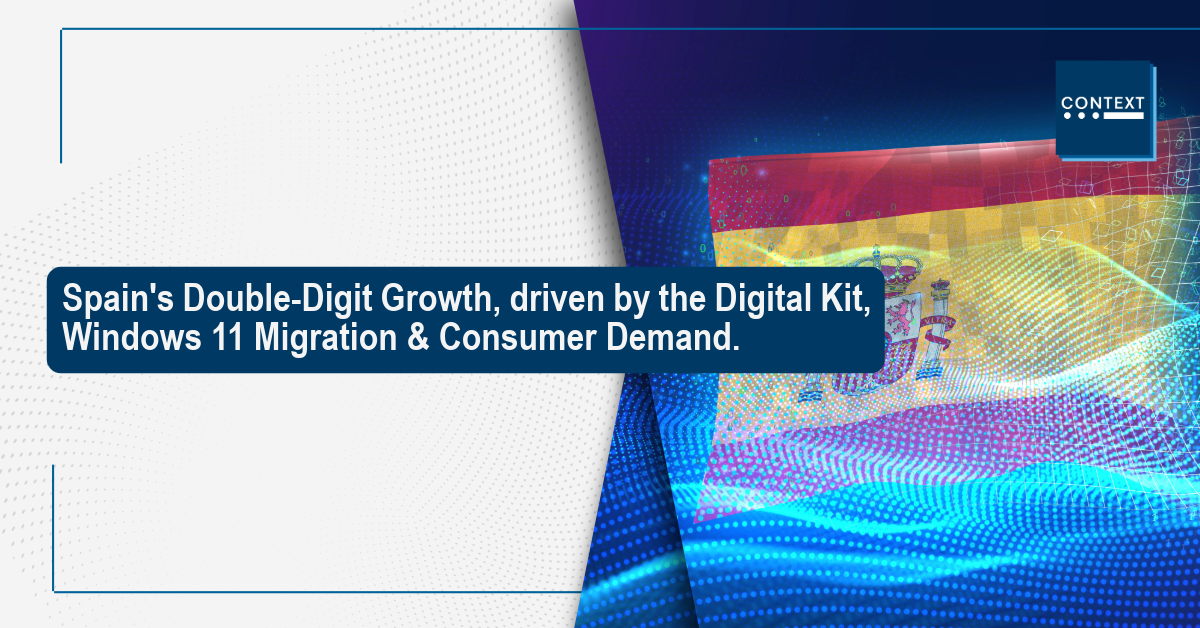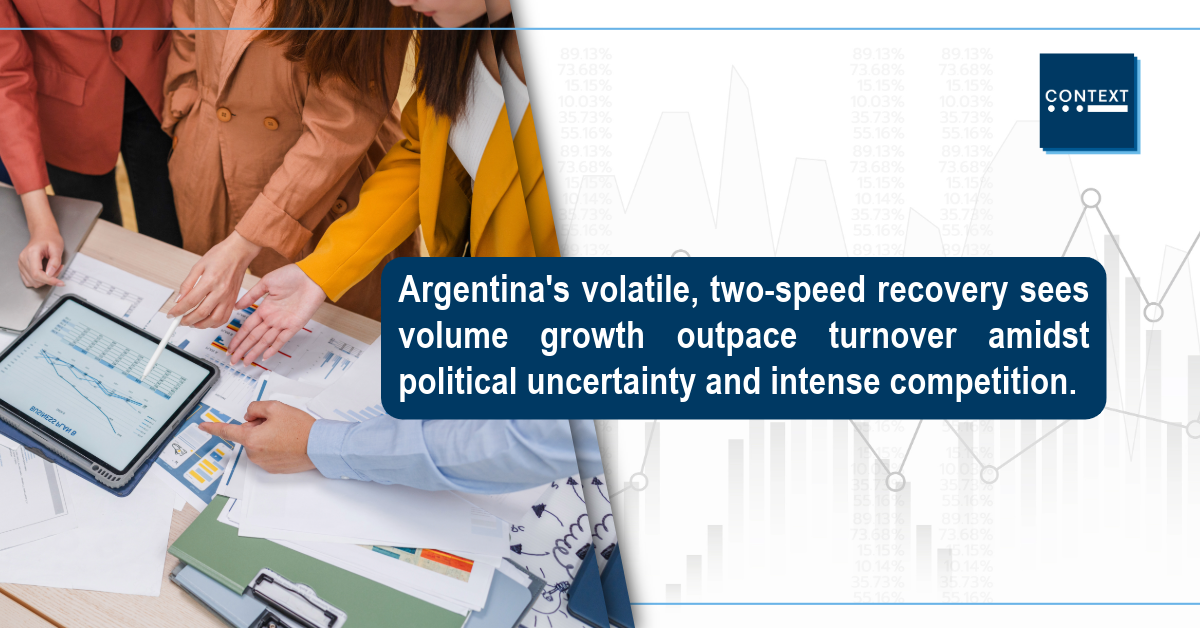As the global economy recalibrates, the
IT distribution landscape is demonstrating markedly different speeds
and dynamics across regions. Recent market intelligence from Spain and
Argentina reveals two contrasting narratives: one of a market soaring
on the back of state-driven digital transformation and another
grappling with political uncertainty, where recovery is measured in
volume before value.
For vendors and channel partners,
understanding these divergent trends is crucial for setting strategy,
allocating resources, and future-proofing their business models.
Spain: Europe’s Unlikely IT Growth Engine
While major European economies such
as France, Germany, and Italy are losing momentum, Spain is emerging
as a standout performer. In 2025, its IT sector has achieved nearly
15% cumulative growth, driven by resilience in the economy and
powerful technology refresh cycles.
The Catalysts for Double-Digit Growth
Spain is currently leading growth in
the European Union, propelled by strong domestic demand and European
recovery funds. Key factors driving this momentum include:
- The 'Digital Kit' Programme: This EU-funded
programme, focused on SMEs, has been a major driver. It included
hardware (specifically PCs) and has been instrumental in the
digitalisation of small businesses.
- The
Windows 11 Migration Cycle: The impending end of support
for Windows 10 is fuelling a massive device upgrade cycle, pushing
vendors to change or migrate many devices.
-
Consumer Demand: Even consumer channels are thriving,
growing at 17% so far this year as devices purchased
during the COVID-19 pandemic are updated.

The Shift from Product to Service
Beyond raw growth, the Spanish
market is undergoing a fundamental transformation that signals a
"harbinger of the 'As-a-Service' future". The market is
clearly moving away from a product-first mentality towards a
service-driven, recurring revenue model.
The top three sectors by
turnover—mobile computing, software and licences, and
telecommunications—now represent 52% of the total market.
Critically, software and licences have jumped to the
second-largest sector, showcasing a significant investment in the
cloud and licensing. The rise of services and networking (both
growing at double digits) reinforces this shift, signalling that
vendors are increasingly focused on "selling a service"
rather than just a PC.
The Spanish market presents a clear
mandate for vendors: capitalise on the current growth whilst pivoting
offerings to focus on value-added services and long-term contracts.
Even as the Digital Kit programme is set to end in October, new grants
for the
Digital Data Kit (£60
million) and artificial intelligence (£180 million) ensure
that new funding streams for intelligent solutions will drive the
next wave of growth.
Argentina: Navigating a Volatile, Two-Speed Recovery
The IT distribution market in
Argentina tells a story of recovery defined by both momentum and
volatility. Whilst the market is showing signs of a strong rebound the
first months of 2025, political uncertainty and intense competition
are tempering the outlook.

Volume is the Leading Indicator
For the tracked industry sectors,
total growth in Argentina so far this year was a positive 29%
compared to the same period in 2024. However, a closer look reveals a
counterintuitive lag:
- Unit Volume vs. Turnover: In the first few
months of the year, unit growth was stronger than
turnover growth. This is a leading indicator, as volumes tend to
rebound first before that effect is transferred to
turnover.
- The Political Headwind: The
uncertainty surrounding the upcoming October elections is
slowing down investment decisions and moderating spending. This
explains why the unit curve was "practically flat" by
July and August.
- Intense Competition: The unit
curve's sharper peaks and volatility show a market characterised
by very intense competition.
Sector Spotlight: Network Systems
Despite these challenges, one
segment stands out: network systems. This sector surpasses 2023
performance levels so far in 2025, highlighting a resilient growth
pocket. Mobile computing remains Argentina’s largest sector (25%
share), followed by networks (14%).
Key Takeaway for Vendors
The lesson from both markets is
clear: a one-size-fits-all strategy is obsolete. In Spain,
vendors should accelerate their pivot to 'as-a-service'
models to capitalise on government-fuelled digitalisation and robust
consumer demand. In Argentina, a more cautious and
targeted approach is necessary, focusing on the volumes that
presage future turnover and prioritising investments in resilient
sectors like networking. Understanding these two different growth
speeds is the first step toward optimising your strategy in a
fragmented global IT market.
To stay up to date with upcoming events and
the latest news about the technology sector in Latin
America, follow the CONTEXT
LATAM page on LinkedIn!